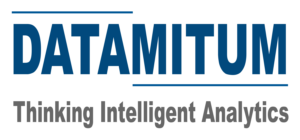Data Science: Advanced Course
Ranked #1 Online Live Data Science Training
What will you learn?
Module 1- Neural Networks Using Tensorflow and Keras
Module2- Working with images & CNN Building Blocks
Module 3- CNN Architectures and Transfer Learning
Module 4- CNN's at Work - Semantic Segmentation
Module 5- Object Detection
Module 6- CNN’s at work- Siamese Network for Metric Learning
Data Science Course Overview
Anexas Advanced Data Science course is designed to excel in the fields of Data Science. After completing your basic and intermediate knowledge in Data Science, you can join this course to learn and experience Data Science and its every aspect in depth. This course includes training of Neural Networks using TensorFlow and Keras, CNN and its different parts. The course also includes real-time projects and assignments to enhance your practical knowledge in the field of Data Science.
What's in it for you?
To become a Data Scientist or serve other fields of Data Science, this course is the key to get the in-depth knowledge of Data Science. After completing this course, you will be able to get better opportunities at jobs with enhanced job profile, salary benefits and network to work with the most important industries. Mentioned below are the benefits of Anexas Advanced Data Science course with certificate:
- A certificate of international recognition by Anexas Europe.
- Interactive training sessions with industry experts trainers..
- Lifetime membership to Anexas Alumni group.
- Lifetime access to dashboard with Anexas.
- Study material and course material updated with industries.
- Free eBooks with completed projects and Project guidance.
- Real-time project completion during the course.
- Tools required for the training.
- Open book online test for certification.
- 100% Pass guarantee.
- 24×7 Customer support.
Enquiry Form
Get Certified In Data Science
- Basic Mathematics – DL
- Introduction to Perceptron & History of Neural networks
- Activation functions
- Sigmoid
- Relu
- Softmax
- Leaky Relu
- Tanh f. Exponential Linear Units (ELU) g. Swish”
- Gradient Descent
- Learning Rate and tuning
- Optimization functions
- Introduction to Tensorflow
- Introduction to Keras, Theano, PyTorch – handson
- Backpropagation and chain rule
- Fully connected layer
- Cross entropy
- Weight Initialization
- Regularization
- coding perceptron
- Q&A
- Working with Images- Introduction
- Working with Images – Digitization, Sampling, and Quantization
- Working with images – Filtering – OpenCV
- Hands-on Python Demo: Working with images
- Introduction to Convolutions
- 2D convolutions for Images
- Convolution – Backward – handson
- Transposed Convolution and Fully Connected Layer as a Convolution – handson
- Pooling: Max Pooling and Other pooling options – practical
- CNN Architectures and LeNet Case Study
- Case Study: AlexNet
- Case Study: ZFNet and VGGNet
- Case Study: GoogleNet
- Case Study: ResNet
- GPU vs CPU
- Transfer Learning Principles and Practice
- Hands-on Keras Demo: SVHN Transfer learning from MNIST dataset
- Transfer learning Visualization (run package, occlusion experiment)
- Hands-on demo -T-SNE
- Hands-on CNN nets
- Hands-On OCR, Face Recognition, Object Detection, Pose Estimation, 3D estimations
- CNN’s at Work – Semantic Segmentation
- Semantic Segmentation process
- U-Net Architecture for Semantic Segmentation
- Hands-on demo – Semantic Segmentation using U-Net
- Other variants of Convolutions
- Inception and MobileNet models
- CNN’s at Work – Object Detection with region proposals
- CNN’s at Work – Object Detection with Yolo and SSD
- Siamese Network as metric learning
- How to train a Neural Network in Siamese way
- Hands-on demo – Siamese Network
Tools Covered







Mode Of Training
Online Live Training
140+ hours of rigorous training
Certificate after completion
Live interactive sessions
Access to learning videos
Diverse batches
Data Science Course FAQs
Data science is the process to draw information from raw data and interpret it into useful insights for business decisions. Data Scientist, Data Analysts, Statistician, Data Engineer are a few of the common job profiles in Data Science. Data science involves a life cycle; capture, maintain, process, analyse and communicate data for business decisions.
Data Science is a comparatively new field with more jobs to offer than the existing fields in computer science and IT. Data Science is a vast multi-disciplinary field with scope of working in leading industries like healthcare, telecommunication, cyber security, finance and others. Data Science has grown with advancement in technology and has more scope of growth in future, offering unaccountable jobs in top MNCs and in top cities.
Any professional belonging to IT, marketing, engineering or software can take a data science course to pursue a career in the fields of data science. Undergraduate students, with more than 50% marks in mathematics, statistics or computer science in 12th examination from science stream are eligible. Graduates with a bachelor’s degree in science, engineering, technology or mathematics are also eligible.. Graduates in business studies like BBA or MBA are also eligible. Data science requires knowledge of mathematics, computer science and statistics.
Data Science certification enables you to start or elevate a career in the fields of data science. Some benefits are:
- Enhanced skill sets to work on different domains.
- Opportunity to work in leading industries.
- Flexibility to switch domains.
- More job opportunities to choose from.
- Higher salaries offered.
- Infinite job opportunities due to high demand.
According to an article published in naukri.com, 3,00,000 plus data scientists would be required in different sectors by 2024, with 3400 positions increasing every month. Common job profiles are:
- Data Scientist
- Python Programmer
- Machine Learning Engineer
- Data Analyst
- Data Engineer
- Statistician
Data Science course with Anexas focuses on training individuals on understanding of Data Science and its aspects, tools and techniques required and skill sets required. The course prepares students for job opportunities with many assignments and real-time projects. Key learnings after completion of this course:
Basic Course in data science: Data analysis, basic visualisation and data modelling.
Intermediate Course in data science: SQL, NLP and different statistical NLP techniques.
Advanced Course in data science: Neural Networks using TensorFlow and Keras, CNN and its different parts.
Yes. The course cost includes the cost of examination, certification, tools, software study material etc. There are no other costs payable once you pay for the course.
Anexas offers the following payment methods:
- Net Banking.
- Card Payment.
- Cash payment.
Cancellation is available 72 hours before the start of the course with 10% deduction. Any cancellation after that is non refundable.
However, Anexas supports custom batches or changes in time and date according to individual preferences, without any additional cost.
Anexas certification course includes all industry level requirements to work in the fields of Data Science. Including tools, softwares, skills and concepts used in different industries. The course opens you to opportunities available in different domains, with job assistance, project guidance, assignments and resume building.

